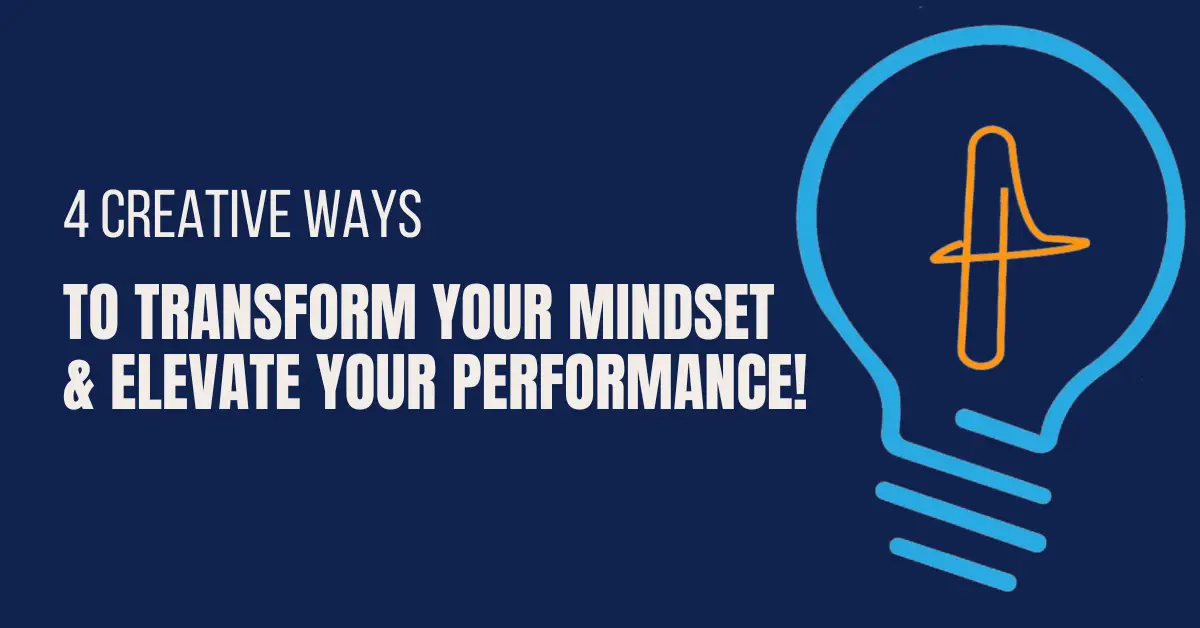Have you ever felt like you were the only one falling short of success?
You’re practicing diligently, consumed by your goals, and tortured when you fall short of them. Everyone else is “getting it,” or so it appears from their curated social media posts. Meanwhile, your expectations are crushing you, you’re beginning to question your talent, and you’re afraid you don’t have what it takes to be successful.
The truth is, you need to change your mindset.
Here are 4 ways to help you think differently about your playing, goals, and success and remove the barriers holding you back. They will allow you to achieve more with less effort and have more fun!
Here, we will examine the following.
- Perfectionism: The Curse of Caring Too Much
- Failure: Life’s best teacher
- Gratefulness: A grace-full perspective
- Fun: The only reason we do it, or should be
Let’s Dig In!
Perfectionism (The Curse of Caring Too Much)
The Problem
Striving for perfect outcomes overwhelms us, stalls our progress, adds pressure, and wastes time. It prevents us from focusing on the parts of the process we can control and accepting that failure is inevitable and valuable. It destroys our confidence and keeps us from appreciating that “Good enough is good enough.”
The Solution
We can overcome perfectionism by
- Setting internal goals
- Focusing on the process, not the outcome
- Accepting inevitable failures
- Recognize that progress requires consistent effort, not perfect results
I remind myself that what I do matters more than how I do it.
Why it works
This approach keeps us focused on things we can control.
By setting internal goals, we commit to consistent effort and trust that our effort will create consistent progress. We acknowledge that we can only influence our outcomes and that mistakes are part of the process. This allows us to use our failures as learning opportunities.
Failure (Life’s best teacher)
The Problem
We fear failure, so we avoid it. We don’t appreciate its inevitability and miss the opportunity it provides to help us improve. We view failure as a negative outcome that indicates a lack of success instead of realizing it teaches us things we don’t know and provides a clear path toward our goals.
The Solution
If failure is a negative outcome to be feared and avoided, then the solution is to embrace it, seek it out early and often, and learn the lessons it teaches.
Why it works
Embracing failure teaches us what we need to know to achieve our goals, builds confidence, and makes failure a positive experience. It removes fear and makes failure a valuable learning tool.
Gratefulness (A grace-full perspective)
The Problem
We are too hard on ourselves. We take things too seriously by placing too much significance on our goals and abilities. We become too emotionally attached to success and let it affect our confidence and self-worth.
The Solution
We must keep things in perspective, be kind to ourselves, and be grateful for the opportunity to use our talent and ability to strive for our goals. Even when we fail, we must be grateful for the chance to learn from and overcome our failures.
Why it works
When we are kind to ourselves, it builds our confidence and motivation. When we stay emotionally detached from our outcomes, we remain focused on the present and the things we can control. All this helps us appreciate the value of our opportunities, stay committed to the process, and unlock our potential.
Fun (The only reason we do it, or should be)
The Problem
We let unimportant things consume too much of our mental energy. We are too focused on our goals and achieving success. We obsess over our failures and worry about how we appear to others. We forget the fundamental reason we make music.
The Solution
We must remember to have FUN every time we play our instrument. When we have fun, we automatically relax, forget about the pressure of achievement, and enjoy the musical moment we are making as it happens.
Bookend each practice session by playing something you enjoy. Do this every time you practice, and your ability to find joy in what you’re doing will increase.
Why it works
When we have fun, we get into a “flow state” where we aren’t distracted by thoughts and emotions that get in the way of our performance. We remain calm and present, and we perform better! Having fun unlocks our potential and makes our efforts more productive. When we enjoy ourselves, we build our confidence and motivation and want to practice more, which leads to the outcomes we want with less effort.
Conclusion
With these ideas, you can transform the way you think about practice and performance. The new mindset you develop will improve your practice sessions and performances and help you achieve your goals faster and easier.
Your mind is a powerful tool. It can help you achieve your goals with more fun and less effort when used well. Try these ideas out for yourself, and let me know what you think!
I believe in you. You can do this, and it’s easier than you think!

